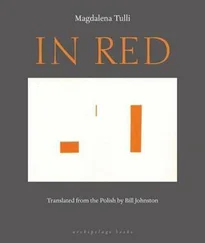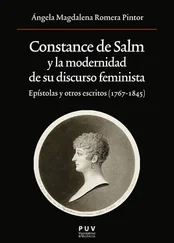Magdalena Tulli - Flaw
Здесь есть возможность читать онлайн «Magdalena Tulli - Flaw» весь текст электронной книги совершенно бесплатно (целиком полную версию без сокращений). В некоторых случаях можно слушать аудио, скачать через торрент в формате fb2 и присутствует краткое содержание. Год выпуска: 2007, Издательство: Archipelago Books, Жанр: Современная проза, на английском языке. Описание произведения, (предисловие) а так же отзывы посетителей доступны на портале библиотеки ЛибКат.
- Название:Flaw
- Автор:
- Издательство:Archipelago Books
- Жанр:
- Год:2007
- ISBN:нет данных
- Рейтинг книги:5 / 5. Голосов: 1
-
Избранное:Добавить в избранное
- Отзывы:
-
Ваша оценка:
- 100
- 1
- 2
- 3
- 4
- 5
Flaw: краткое содержание, описание и аннотация
Предлагаем к чтению аннотацию, описание, краткое содержание или предисловие (зависит от того, что написал сам автор книги «Flaw»). Если вы не нашли необходимую информацию о книге — напишите в комментариях, мы постараемся отыскать её.
Flaw — читать онлайн бесплатно полную книгу (весь текст) целиком
Ниже представлен текст книги, разбитый по страницам. Система сохранения места последней прочитанной страницы, позволяет с удобством читать онлайн бесплатно книгу «Flaw», без необходимости каждый раз заново искать на чём Вы остановились. Поставьте закладку, и сможете в любой момент перейти на страницу, на которой закончили чтение.
Интервал:
Закладка:
Magdalena Tulli
Flaw
FIRST WILL COME THE COSTUMES. THE TAILOR WILL supply them all wholesale. He’ll select the designs off-handedly and, with a few snips of the shears, will summon to life a predictable repertoire of gestures. See — scraps of fabric and thread in a circle of light, while all around is darkness. Out of the turmoil will emerge a fold of cloth, the germ of a tuck fastened with a pin. The tuck will create everything else. If it’s sufficiently deep, it will call into existence a glittering watch chain on a protruding belly, labored breathing, and a bald head bedewed with perspiration. One thing leads to another. The outward appearance brings with it certain attributes: gluttony, pride, and a disagreeable matter-of-factness that douses every impulse of the heart like cold water poured from a bucket. For each three-piece suit there have to be at least two linen kitchen aprons, one for the lady of the house, one for the maid. But there should only be a single gown, in finest taffeta for example. A second one would spoil everything. The plot would be over before it began, brought to a close by a premature scandal.
As for the maid, a length of flower-patterned calico will suffice for her frock. Half a dozen needlework samplers proclaiming banal and dubious bourgeois truths, and a set of baby linen composed of diapers and clothing — these are too trivial for the tailor to bother with, and besides, they are bound to appear anyway at the appropriate moment, spontaneously, owing their existence to a domestic sewing kit kept in a tin. With them will come all sorts of hopes, expectations, and calculations, and in time, by the very nature of things they’ll start to acquire the leaden weight of disenchantment. Where school uniforms are concerned, the tailor’s expertise will prove indispensable. But even if the matter is spread out over time, it will still eventually roll to an edge beyond which there will be nothing but disorderly collapse and blasts of failure. The only hope for happy endings lies in shortening the tale — in snapping off the story lines early enough, before they fray and grow impossibly tangled. And above all in avoiding climaxes that, like fire, once started will reduce every hope to ashes.
Things could stop at the tailor if, in a sudden rush of sympathy, he were to decide to spare the world the frenzy of desires and disappointments. He would need only to refuse to collaborate, to decline his advance — to abandon the job and run away, shouting at the top of his voice that all that can be seen does not exist. And everything else? If it exists, it is invisible. It’s quite possible the world would still believe only its eyes and ears, believe in the weave of fabrics, in their rustle, in the gleam of buttons. By night the soft rattle of the sewing machine is heard, and in the morning all will be ready. The tailor’s shears impassively cut the cloth and the sateen for the lining. The needle pierces them over and again, drawing with it the thread without which the stitch would be useless. In the display window, next to an immaculate notary with a fur collar, there hangs a finished fraternity student — a shapely jacket with a disquieting emblem pinned to the collar. A rotund maid in a flower pattern, pressed for Sunday, a handful of brand-new airmen in a plausible shade of gray, a policeman in dark blue uniform cloth, a bridegroom black as pitch, and a snow white bride behind a chiffon veil. They are neither bad nor good; given their scant reserves of patience, they’ve been kept too long in abeyance, away from the scene of the action that is only now about to begin, living on dreams alone. They are strung on wooden hangers, with no ground beneath their feet, with no feet even, till the moment comes for them to take the first step. They are waiting for their time, unaware that their fate has been fulfilled in advance, in the tissue-paper sheets of the patterns.
In one place, for instance, the material has been slightly stretched, while in another it is a little wrinkled; the excess has been folded into the seam and more or less ironed flat, so that the whole, along with the facts, should match long-established conclusions about one or another of the characters. As the first costume at hand is examined, it’s hard not to be disagreeably surprised that under the lining, nothing is the way it appears on the surface. Various small defects in the cut will reveal incidentally that the materials have been apportioned unfairly and in short supply. It might be observed that matters of the highest importance are decided by prejudice and whim. But it’s easier to be unobservant. Whoever is able, deliberately sticks with his initial impression, refusing to acknowledge anything new. The eye would rather ignore any troubling details. And with even greater providence, it prefers to ignore all details whatsoever. Whoever is able, in such a manner protects from doubt his hopeful notions of the whole — notions that may well be more valuable than the whole itself.
The work of the shears is irreversible, and no alterations can be made. The designs contain the entire truth, both that which it behooves everyone to believe and that which no one can be bothered to check. They offer support for any commonly accepted view. The design is a template for the mass production of opinions. Are not even the most dubious judgments lent credibility by the eloquent clarity of the cut? Each outfit is a sign and a suggestion; each revives antiquated associations and arouses expectations that are not coincidental. And at the same time, from top to bottom, or rather from the crown of the hat to the soles of the shoes, each one defines a posture that even in movement is in its own way unchanging, stubborn, incompatible with anything at all. The costumes do not match one another. Their neutral, muted tones are the best guarantee that on a crowded street they will at least not clash. But color will not reconcile them. Especially overcoats — not when they are completely new, but when they’ve already been worn for some time and have been marked by their encounter with the rough surface of reality. Then they become the source of undying antagonisms, the cause of unseen tensions and excessive atmospheric pressure, ready to explode like compressed steam, and capable of setting in motion even the most sluggish chain of events. But why should the tailor care about all this as he sews stitch after stitch of gold braid onto a general’s collar, his tape measure slung around his neck, his gaze unseeing behind thick eyeglasses? If the plot is on a large scale, it’s hard offhand even to list all the items of clothing that will be needed.
And what if I’m the one who placed the order? What if I can barely afford the whole thing? The dozens of packets of buttons for underwear and suits, the countless reels of thread and bolts of cloth? Perhaps the advance paid to the tailor was too small, like an inadequate length of inferior plaid. He alone knows where that mountain of overcoats came from. It’s best not to ask. Either it’s an overdue job, or he took in additional work on the quiet, so as to come out even. The more perfect the items that sprang from his needle in the first burst of inspired diligence, before the cash was used up to pay the rent, the greater the subsequent shame when things began to descend into the mass production of cheap and poorly made garments. But shame decays; nothing turns to dust faster. It is wiped off with a clothes brush. Discarding his ambitions, the tailor will from now on cut the cloth sparingly and unimaginatively, ever more skeptical, and in the end he’ll become sarcastic and malicious, since he can already see that his labor was all in vain. It deserves to be spat upon, nothing more. Whoever pays and calls the shots purchases hours of drudgery over the needle but cannot buy a conscience. The tailor does not feel guilty if contempt soils the costumes. So what if it spatters greasy stains here and there from the oil of the sewing machine, or black drops of bad blood from pricked fingers? Spitting marks fates most painfully, even though saliva leaves no trace.
Читать дальшеИнтервал:
Закладка:
Похожие книги на «Flaw»
Представляем Вашему вниманию похожие книги на «Flaw» списком для выбора. Мы отобрали схожую по названию и смыслу литературу в надежде предоставить читателям больше вариантов отыскать новые, интересные, ещё непрочитанные произведения.
Обсуждение, отзывы о книге «Flaw» и просто собственные мнения читателей. Оставьте ваши комментарии, напишите, что Вы думаете о произведении, его смысле или главных героях. Укажите что конкретно понравилось, а что нет, и почему Вы так считаете.












